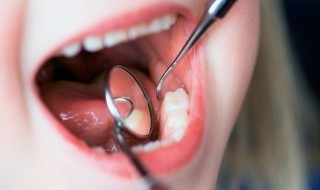 Howard Thomas discusses the signs and symptoms to look out for with oral cancer and how the Curaprox toothbrush can help.
Howard Thomas discusses the signs and symptoms to look out for with oral cancer and how the Curaprox toothbrush can help.
Cancer is a deadly disease caused by an uncontrolled division of cells. If left untreated the uncontrolled growth, commonly referred to as a tumour, can spread to normal tissues nearby; create pressure on other body structures or travel and infect other parts of the body through the lymphatic system or bloodstream (www.cancerresearchuk.org, 2013).
From over 200 cancers, oral cancer is the 16th most common in the UK (2011). Figures have continued to rise over the last decade by 32% and 33% in males and females, respectively (www.cancerresearchuk.org, 2014). Early detection of oral cancer remains imperative to ensure treatment gets underway as soon as possible. Statistics reveal that if the cancer is diagnosed during stage I, when it is confined to the primary site and small (less than 2cm), nearly 90% of people survive for at least two years (Scully and Kirby, 2014).
Dentists and hygienists will often be the first healthcare providers to spot oral cancer. As within the UK, over 60% of dentate adults regularly attend a dentist. These frequent dental visits provide ideal opportunities for the prevention and early detection of diseases (Creanor, Millward and Demaine, 2013). As part of the GDC’s (General Dental Council) continuing professional development (CPD) scheme, ‘Oral cancer: improving early detection’ is now included as a ‘recommended’ topic (www.gdc-uk.org, 2012). CPD training defines the dental team’s duty-of-care, and information and advice is provided on how to implement a management strategy to help improve early detection within the practice (www.bda.org, 2013).
Signs and symptoms
The main symptoms of oral cancer that healthcare professionals need to be aware of include:
- Red or white patches on the lining of the mouth or tongue
- One or more mouth ulcers that do not heal after three weeks
- A swelling in the mouth that lasts for more than three weeks
- Pain when swallowing
- A tooth, or teeth, becoming loose for no obvious reason
- A persistent pain in the neck
- A hoarse voice
- Unexplained weight loss
- Unusual changes in a patient’s sense of taste
- Earache
- Swollen lymph nodes (glands) in the neck (www.nhs.uk, 2014).
Additionally, the latest UK statistics reveal that around 91% of oral and pharyngeal cancers were linked to lifestyle in the UK in 2010 (www.cancerresearchuk.org, 2014). Being aware of patients that are at an enhanced risk of cancer can help healthcare professionals spot the warning signs early and encourage patients to attend their GP (general practitioner) for further tests and assessments. The main risk factors include:
- Smoking
- Infections
- Excessive alcohol intake
- Radiation
- Poor diet
- Obesity
- A lack of physical exercise.
Treatment and oral health consequences
Oral cancer can be treated with different methods, for example chemotherapy, surgery, irradiation or a combination of these techniques (Lieshout and Bots, 2014). Regardless of the treatment or the cancer, most patients being treated will experience oral complications from the severity of the procedures (www.mouthcancerfoundation.org, 2002).
Due to the vital structures in the head and neck region, radiotherapy is a very technical procedure with a number of severe secondary consequences, including clinically significant short and long-term oral adverse effects (Lieshout and Bots, 2014; www.mouthcancerfoundation.org, 2002). Most problems are temporary, like the loss of taste, fungus infections, sensitive or painful soft tissue, osteoradionecrosis of the jawbone (ONJ) and mucositis. Other complications are more permanent in character, such as atrophy of the jaw muscles, trismus and changes of the bacterial microflora and proteins. The salivary glands are also often affected resulting in a reduction in quantity (hyposalivation) and quality of saliva. Furthermore, rapid deterioration of dental hard tissue is often observed (Lieshout and Bots, 2014).
Hence, radiotherapy can affect the patient’s ability to maintain a sufficient oral hygiene routine and, coupled with any existing oral or dental disease (eg periodontitis, caries, failing restorative work or dentures), the risk of infection may increase. Sometimes the patient’s cancer treatment may have to be stopped or delayed if pain and discomfort resulting from the teeth and gums is too severe (www.mouthcancerfoundation.org, 2002). Preventative measures before and during early cancer therapy are therefore vital.
The role of the dental team in the early detection and implementation of a clear pathway of care is essential to prevent or minimise oral complications (www.mouthcancerfoundation.org, 2002). Advice should be given on maintaining optimum oral health, including offering patients effective, gentle and easy-to-use adjunctive options. For example, the CS 5460 ultra soft toothbrush from oral healthcare expert, Curaprox, is an ideal product for cancer patients. The toothbrush features unique filaments made from Curen technology, which are incredibly gentle and flexible, giving a thorough clean while remaining soft on damaged teeth and gums. As pharmacist Miss Chow says: ‘After chemotherapy last year, my gums became very sensitive. I’ve had no problem with the CS 5460 however, as it is soft and comfy on the gums and massages them properly. The small head reaches all parts of my mouth and I really enjoy using it.’ Other effective products from Curaprox include the Curasept ADS mouth rinse, providing all the beneficial antimicrobial properties of chlorhexidine, without any side effects.
Oral cancer and resulting treatment can cause serious destruction to teeth and oral function, which can have a major impact on the patient’s quality of life. Healthcare professionals therefore need to remain vigilant for early signs of oral cancer and implement effective procedures to enhance oral healthcare in sufferers.
For a list of references please contact [email protected].
For more information please call 01480 862084, email [email protected] or visit www.curaprox.co.uk.


